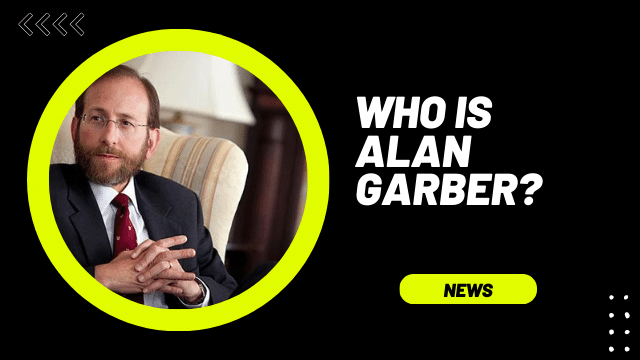Alan Garber: Harvard’s Interim President Following Claudine Gay’s Resignation
In the aftermath of Claudine Gay’s resignation as Harvard’s president, the university turns to Alan Garber as the interim leader. Born into a Jewish family, Garber steps into the role amid controversy surrounding Gay’s departure after a short six-month tenure.
Alan Garber, the designated interim president of Harvard, brings a wealth of experience and a strong academic background to his new position. Raised in a Jewish household, Garber’s upbringing has likely influenced his perspective and approach to leadership.
Harvard’s recent leadership transition unfolded as Claudine Gay, aged 58, resigned from the presidency after facing allegations of both antisemitism and plagiarism. Gay, who asserted that the accusations were fueled by ‘racial animus,’ stepped down from her role, creating a vacancy that Alan Garber is now poised to fill temporarily.
As the university community adjusts to this shift, many are curious about Alan Garber’s background and credentials. Known for his expertise and accomplishments, Garber’s leadership is anticipated to provide stability during this interim period. His appointment comes at a crucial time for Harvard, and the university looks to him to guide the institution forward while maintaining its commitment to academic excellence.
Alan Garber’s tenure as interim president brings an opportunity for the university to reflect, reassess, and navigate the challenges it faces. As the Harvard community looks toward the future, the spotlight is on Garber and his potential contributions to the institution’s ongoing legacy.
Who is Alan Garber?
Harvard President Claudine Gay Resigns Amid Controversy: A Closer Look at Her Departure and the Interim Leadership Transition
In a noteworthy turn of events, Harvard President Claudine Gay has tendered her resignation in a strongly-worded letter to colleagues and students. However, the letter lacks an apology or acknowledgment of the controversies that precipitated her departure.
Gay’s presidency, lasting a mere six months, stands as the shortest tenure in Harvard’s history. The decision comes just 28 days after her surprising congressional testimony addressing campus antisemitism, which added fuel to the fire of existing accusations against her.
Accused of both plagiarism and antisemitism, Gay’s response to calls for addressing issues related to Jewish students’ safety on Ivy League campuses raised eyebrows. Despite the allegations, she refrained from categorizing calls for Jew genocide as harassment and declined to acknowledge the concerns of Jewish students.
In her resignation letter, Gay strongly asserts her victimhood, attributing her decision to resign to what she describes as “threats fueled by racial animus” from the school’s board. The board, previously under pressure to replace her after defending her controversial remarks, now finds itself at the center of this abrupt leadership change.
Gay expressed in her email: “It has been distressing to have doubt cast on my commitments to confronting hate and to upholding scholarly rigor—two bedrock values that are fundamental to who I am—and frightening to be subjected to personal attacks and threats fueled by racial animus.”
Following Gay’s resignation, the mantle of leadership falls to Alan Garber, the appointed interim president of Harvard. As questions arise about the circumstances leading to Gay’s departure, a closer examination of Garber’s background, selection process, and the reasons behind his appointment provides insight into the evolving landscape of this prestigious Ivy League institution.
Why did Claudine Gay resign?
Claudine Gay’s resignation from the position of Harvard president is marked by a series of events that led to mounting controversies during her brief six-month tenure.
Appointed in July, Gay found herself in hot water following a congressional hearing on anti-Semitism in early December. During the hearing, she stated that ‘context’ was necessary to determine if calls for the genocide of Jews violated Harvard’s rules on bullying and harassment. This statement, along with her refusal to explicitly condemn such calls, sparked significant outrage.
Despite condemning the actions of Hamas and disavowing anti-Semitism in general, Gay’s hesitancy to denounce students advocating for the genocide of Jews drew criticism. When pressed on whether such calls violated Harvard’s bullying policy, Gay stated it depended on the context, clarifying that anti-Semitic rhetoric crossing into actionable conduct would face consequences. Subsequently, she apologized, attributing her words to confusion.
The aftermath of the congressional hearing saw notable donors and students boycotting Harvard. Len Blavatnik, a major contributor, halted donations, citing concerns about ‘rampant anti-Semitism on campus.’ Israeli billionaire Idan Ofer and his wife also withdrew their support in response to school organizations blaming Israel for Hamas’ attacks. The Wexner Foundation, having donated $56 million over 30 years, completely pulled its support.
Hedge fund manager Bill Ackman intensified the pressure, urging a board review of Gay’s history, including plagiarism allegations and accusations of discrimination within Diversity, Equity, and Inclusion (DEI) initiatives.
Despite weathering the storm for 28 days, Gay ultimately resigned after a ‘consultation’ with the school’s board. The complexities surrounding her departure underscore the challenges faced by leaders in navigating sensitive issues and balancing diverse perspectives within prestigious academic institutions.
What did Claudine Gay’s resignation letter say?
Claudine Gay’s Resignation Letter: A Reflection on Values and Harvard’s Path Forward
In her resignation letter, Claudine Gay underscores that her decision to step down from the role of Harvard president is driven by a commitment to the institution’s best interests during a challenging period. Emphasizing the importance of the community navigating this extraordinary moment with a collective focus on the institution rather than any individual, Gay positions her departure as a strategic move for the greater good.
She articulates her decision by stating, “After consultation with members of the Corporation, it has become clear that it is in the best interests of Harvard for me to resign so that our community can navigate this moment of extraordinary challenge with a focus on the institution rather than any individual.”
Addressing accusations and doubts surrounding her dedication to combating hate and upholding scholarly rigor, Gay stands firm in her beliefs. Despite the challenges, she expresses hope that her brief presidency will be remembered as a moment of reawakening to the importance of seeking common humanity, without allowing discord and hostility to undermine the vital educational process.
In her own words, Gay writes, “‘Amidst all of this, it has been distressing to have doubt cast on my commitments to confronting hate and to upholding scholarly rigor—two bedrock values that are fundamental to who I am—and frightening to be subjected to personal attacks and threats fueled by racial animus.”
This resignation letter not only communicates Gay’s decision but also provides insight into her perspective on the values essential to her identity and the challenges faced during her time as Harvard’s president.
Who is Harvard interim president Alan Garber?
Alan Garber: Stepping into the Interim Presidency at Harvard
Alan M. Garber, a distinguished 69-year-old physician and economist, assumes the role of Interim President at Harvard University, showcasing his extensive expertise in academia and leadership. Notably, Garber played a pivotal role as provost in guiding Harvard through the challenges posed by the COVID-19 pandemic.
Hailing from Illinois, U.S., Garber’s academic journey led him to graduate from Harvard University in 1976 with an AB in economics. His commitment to scholarship continued as he earned an AM and a PhD in economics from the same institution. With over five decades of dedicated service to Harvard, he currently holds the prestigious positions of Chief Academic Officer and Mallinckrodt Professor of Health Care Policy at Harvard Medical School. Additionally, he serves as a Professor of Economics in the Harvard Faculty of Arts and Sciences.
Garber’s multidisciplinary contributions extend to his roles as Professor of Public Policy in the Harvard Kennedy School of Government and Professor in the Department of Health Policy and Management in the Harvard T.H. Chan School of Public Health. His diverse academic background reflects his commitment to addressing complex issues at the intersection of health care, economics, and public policy.
In his personal life, Garber is married to Anne Yahanda, an accomplished oncologist and University of Pennsylvania alumna. The couple, parents to four children, including Daniel—a current sophomore at Harvard—demonstrate a shared commitment to education and excellence.
Harvard University, in an official statement, expressed gratitude for Garber’s willingness to serve as Interim President until a permanent successor is identified and assumes office. The university highlighted Garber’s broad and deep experience, incisive judgment, collaborative style, and extraordinary institutional knowledge as valuable assets for guiding the institution through this transitional period.
What did Alan Garber say about anti-Semitism at Harvard?
Alan Garber’s Perspectives on Anti-Semitism and Unity at Harvard
Alan Garber, whose upbringing is rooted in a Jewish background, has openly expressed regret regarding Harvard University’s initial response to the conflict in Israel and Gaza. He considers the ensuing backlash as the most significant crisis faced by Harvard during his 12-year-plus tenure, surpassing even the challenges posed by the Covid-19 pandemic.
Reflecting on the initial statement, Garber acknowledges regret, stating, “I certainly have regrets about the first statement. Our goal is to ensure that our community is safe, secure, and feels well supported—and that first statement did not succeed in that regard.”
In October, Garber addressed Harvard Hillel during a Shabbat dinner, highlighting the importance of free speech while unequivocally condemning the use of the pro-Palestine slogan ‘from the river to the sea.’ This nuanced approach underlines his commitment to fostering a campus environment where diverse perspectives coexist while ensuring the safety and well-being of the Harvard community.
In a statement provided to The Crimson on Tuesday, Garber expressed his ‘deep respect and admiration’ for Claudine Gay. As he steps into the role of interim president, Garber hopes to contribute to the healing and strengthening of a university that holds a special place in his heart.
His emphasis on unity, free speech, and addressing the challenges faced by the community underscores Garber’s commitment to fostering a supportive and inclusive environment at Harvard University during his interim presidency.
What has Alan Garber’s medical research achieved?
Alan Garber’s Pioneering Contributions in Healthcare Research
Alan Garber’s significant contributions to medical research have centered on enhancing healthcare delivery and financing, with a particular emphasis on the needs of the elderly population.
As detailed in his Stanford biography, Garber has made noteworthy strides in developing methodologies for assessing the cost-effectiveness of health interventions. His research has played a pivotal role in advancing our understanding of how to structure financial and organizational incentives, ensuring the delivery of cost-effective care.
One of Garber’s key research focuses lies in exploring the intricate interplay between clinical practice patterns, healthcare market characteristics, and their influence on the adoption of medical technologies, health expenditures, and overall health outcomes. This comprehensive approach extends not only to the healthcare landscape in the United States but also encompasses a global perspective, considering the impact on other countries.
Garber’s research portfolio showcases a commitment to addressing complex issues within the healthcare sector, with a vision to optimize the efficiency and effectiveness of healthcare systems. His work stands as a testament to his dedication to improving healthcare outcomes and accessibility, particularly for the elderly demographic.


